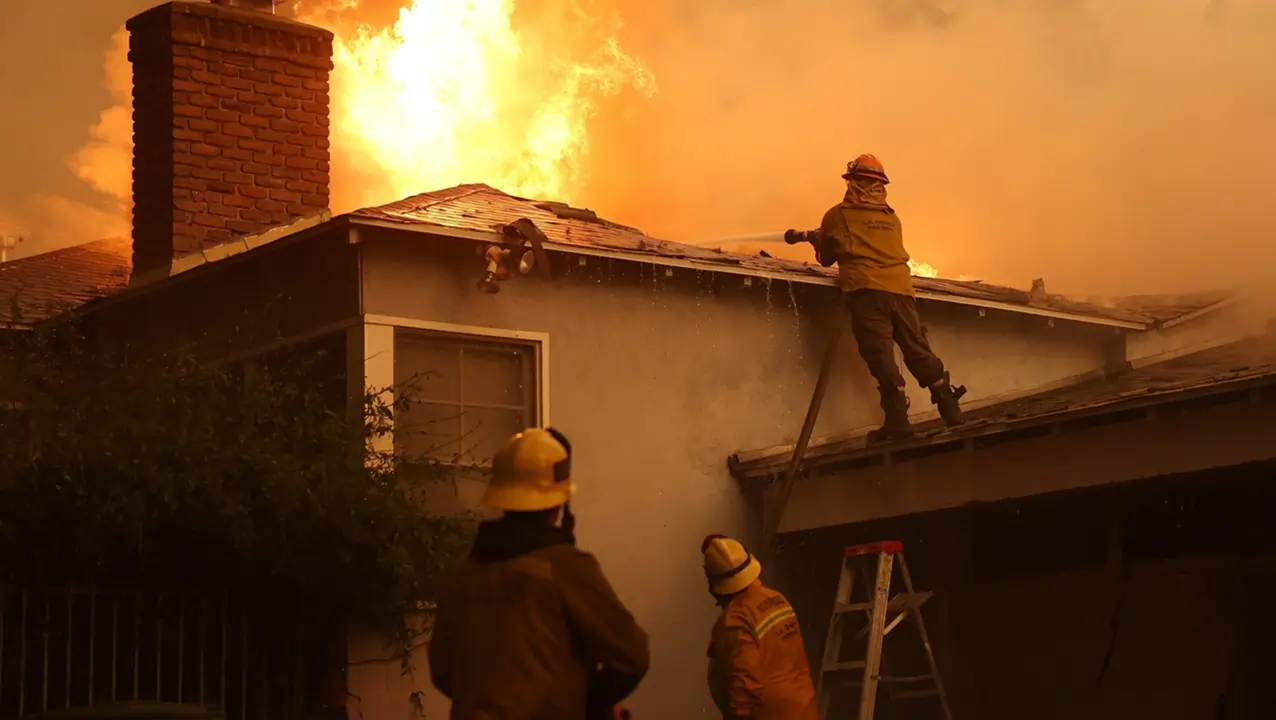Owning a home in the United States is an achievement worth celebrating, but it also comes with responsibilities, one of the most important of which is homeowners insurance. This comprehensive article, with special considerations for California homeowners, explains what homeowners insurance covers, what it doesn’t, and how to find the right policy for your needs.
- What Is Homeowners Insurance?
- Key Coverages in Homeowners Insurance
- What Does Homeowners Insurance Not Cover?
- How Much Does Homeowners Insurance Cost?
- How to Choose the Right Homeowners Insurance Policy
- Top 5 Homeowners Insurance Providers in the U.S.
- FAQs About Homeowners Insurance
- Special Considerations for California Homeowners
- Final conclusion
What Is Homeowners Insurance?
Homeowners insurance is a type of financial protection for you that is designed to protect your most valuable asset (your home) and the assets inside it. It covers damage from natural disasters and certain events, such as fire, storms, or theft. In addition to protecting your property, it also includes liability coverage, meaning that if someone is injured on your property, your policy can help cover their medical expenses or legal fees. This dual coverage of property protection and liability makes homeowners insurance a useful and essential safety net for every homeowner in America.
Key Coverages in Homeowners Insurance
- Dwelling Coverage: It protects the structure of your home, including walls, roof, and interior furnishings, from damage caused by natural disasters and accidents such as fire, storms, or vandalism.
- Other Structures Coverage: This covers detached structures on your property, such as garages, fences, and sheds.
- Personal Property Coverage: It reimburses you for expenses related to loss or damage to personal belongings such as furniture, electronics, and clothing due to theft or covered disasters.
- Loss of Use Coverage: It will pay for your additional living expenses, such as hotel stays or rental costs, if your home becomes uninhabitable after a covered event.
- Liability Coverage: It provides financial support if you are responsible for injury or financial loss to another person.
- Medical Payments Coverage: Covers medical expenses for guests injured on your property, regardless of fault.
“A home is one of the most important investments you’ll ever make. Protecting it should be a priority.” Barack Obama
What Does Homeowners Insurance Not Cover?
Homeowners insurance offers broad protection, but keep in mind that some events are typically excluded, for example:
- Earthquakes: Residents in earthquake-prone areas, like California, should consider separate earthquake insurance.
- Floods: Flood insurance must be purchased separately through the National Flood Insurance Program (NFIP) or private insurers.
- Maintenance-Related Issues: Damage caused by neglect, wear and tear, or pest infestations is not covered.
How Much Does Homeowners Insurance Cost?
The cost of homeowners insurance varies depending on several factors:
- Location: Homes in areas prone to wildfires, hurricanes, or earthquakes may have higher premiums.
- Home Value and Features: Larger or more expensive homes typically cost more to insure.
- Deductible: Choosing a higher deductible can lower your premium, but you’ll pay more out of pocket if you file a claim.
- Credit Score: Many insurers rely on strong credit scores to determine premium costs, though this practice varies by state, though this practice varies by state.
On average, homeowners in the U.S. pay around $1,250 annually for a standard policy. In high-risk states like California, rates may be higher due to specific risks like wildfires and earthquakes.
How to Choose the Right Homeowners Insurance Policy
- Assess Your Coverage Needs: Determine how much it would cost to rebuild your home and replace your belongings. Don’t forget to account for additional living expenses and liability protection.
- Shop Around: Compare quotes from multiple insurance providers to find the best combination of coverage and cost.
- Check Discounts: Many reputable insurance companies offer discounts for bundling policies, installing security systems, or having a claim-free history.
- Read the Fine Print: Fully understand what is and is not covered and ask questions about the policy’s limitations and restrictions.
Top 5 Homeowners Insurance Providers in the U.S.
This table lists five reputable and highly rated insurance companies along with a comparison of their features:
| Company | Best For | Average Annual Premium | Notable Features | Customer Satisfaction |
| State Farm | Overall Coverage | $1,500 | Nationwide coverage, customizable policies | High |
| Allstate | Discounts | $1,400 | Multiple discounts, digital tools | High |
| USAA | Military Families | $1,200 | Exclusive for military members and families | Very High |
| Farmers | Eco-Friendly Homes | $1,600 | Green building replacement option | High |
| Liberty Mutual | Affordable Options | $1,350 | Competitive rates, convenient mobile app | Moderate |
FAQs About Homeowners Insurance
- Is homeowners insurance required?
While it’s not legally required, mortgage lenders usually require homeowners insurance as a condition for obtaining a loan.
- What’s the difference between market value and replacement cost?
- Market Value: The amount your home would sell for on the market.
- Replacement Cost: The cost to rebuild your home with similar materials, which is often higher than the market value.
- Do I need additional insurance for wildfires?
Most standard homeowners policies cover wildfire damage. However, if you live in a high-risk area like California, you may need additional coverage or policies offered by the California FAIR Plan.
- How can I lower my premium?
- Increase your deductible.
- Install fire-resistant roofing and other safety features.
- Maintain a strong credit score to potentially lower your premiums.
- Bundle your home and auto insurance.
- What is an HO-3 policy?
An HO-3 policy is the most common type of homeowners insurance, providing coverage for your home against all risks except those explicitly excluded, while covering personal belongings against named perils.
- Does homeowners insurance cover water damage?
It depends on the source. Sudden and accidental water damage, like from a burst pipe, is typically covered. However, gradual damage or flooding requires separate coverage.
- What happens if I rent out my home?
If you rent out your home, standard homeowners insurance may not cover damage or liability related to tenants. You’ll likely need landlord insurance.
Special Considerations for California Homeowners
California’s unique geography and climate require homeowners to think beyond standard coverage. Earthquakes, wildfires, and floods are significant risks in the state. Be proactive about assessing your risks and purchasing additional coverage if necessary. Earthquake insurance is highly recommended, and homeowners in wildfire-prone areas should evaluate their policy limits carefully.
“Insurance may feel like an unnecessary expense—until you need it. Then, it’s the best investment you ever made.” Warren Buffett
Final conclusion
Homeowners insurance is more than just a financial safety net. By understanding your policy options and tailoring coverage to your needs, you can protect your home and loved ones from potential accidents and challenges. Take the time to evaluate your options, compare prices, and make sure you are fully covered for the unexpected.














